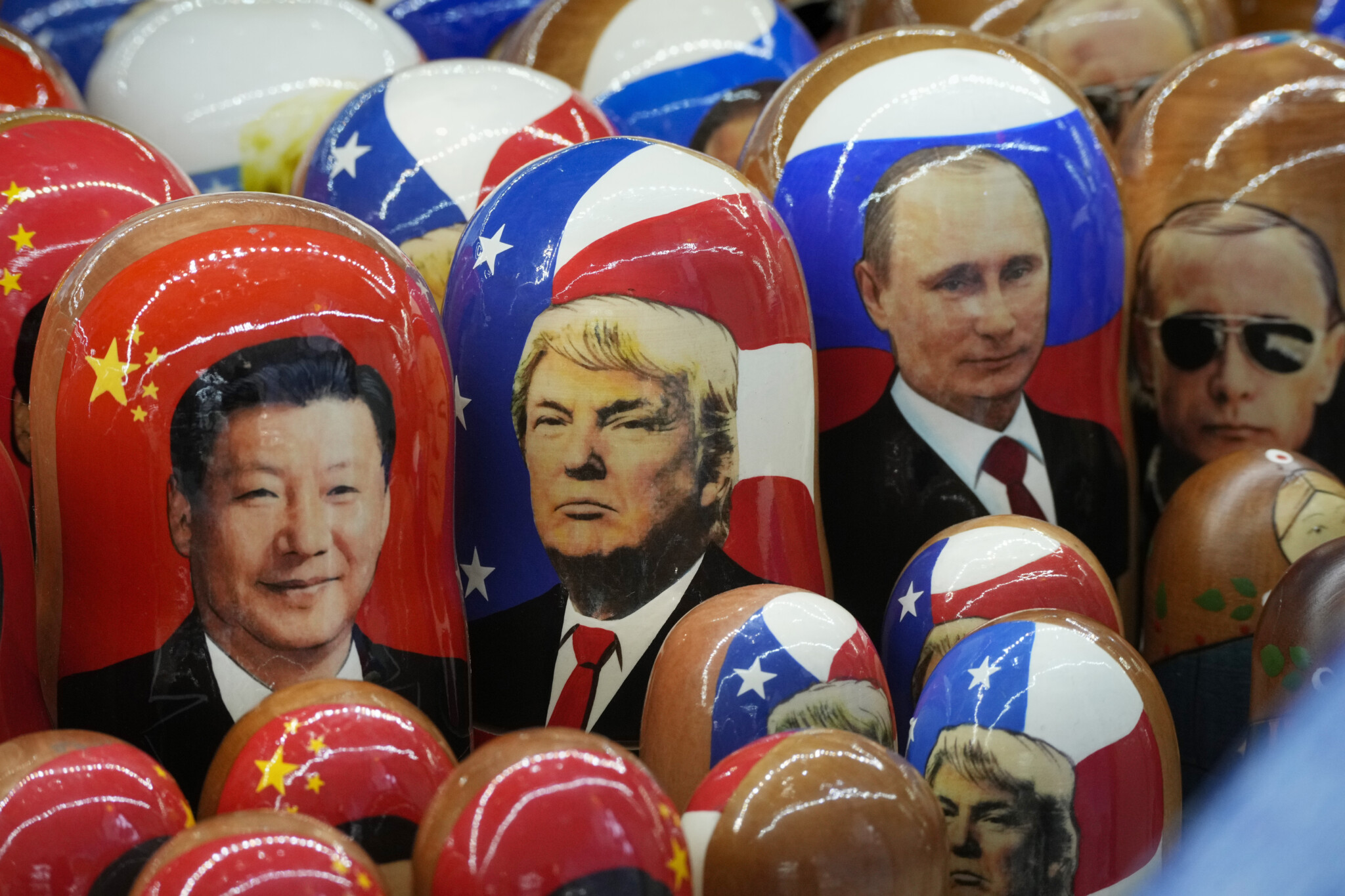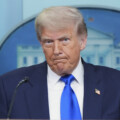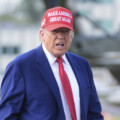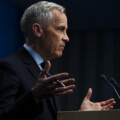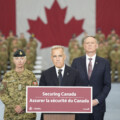
As the United States retreats from being a unipolar power, the prevailing global order is at a crossroads. For Canada, it’s time to start thinking about what comes next and what it means for Canadian policy. The Hub is running a new essay series to grapple with these seismic changes and offer a new clear-headed direction for Canadian foreign policy.
Most of the Western world is grappling with the dramatic change in U.S. policy towards Ukraine. The easy narrative among some is that Trump at a minimum admires and in some eyes is an asset of Putin, and will sell out the West and NATO in the service of his relationship.
Of course, our loyalty to Ukraine and commitment to the removal of Russia from the Donbas is not absolute. Europe is buying more energy from Russia now than before the war and even Canada purchased $200 USD million in oil last year. Still, most of us are rooting hard for the besieged and deplore the idea that Russia should be rewarded for its aggression.
There is a simpler context to view the change in policy, and it becomes clearer if we suppose that the only thing that matters to the Americans is their struggle to contain a rising Chinese threat; that Russia, now enfeebled by three years of self-destructive war is only a regional menace; that Ukraine is irrelevant to global power dynamics and that Russian oil and minerals (and Ukrainian) are better directed to the West than China.
If you accept those precepts, then the logical thing to do is to throw Ukraine under the bus and let Russia save face to prevent a nuclear exchange. It may not be an appealing prospect for those who value the multinational order or even morality itself, but there is a cold hard logic to it that is hard to escape. The only silver lining is a pause to the ongoing destruction of what remains of Ukraine if a ceasefire is actually reached.
First it is essential to understand the context that from the day he descended the escalator, Trump has been talking about the Chinese threat. To his credit, he was early among political leaders in recognizing China as not just a rival but indeed a significant economic and military adversary.
Over the past 50 years, the commitment of the West to liberal economic policies including relatively unrestrained trade and capital flows, protected by U.S. naval dominance, has allowed consistently rapid economic growth and consumer well-being. While economically beneficial overall, the U.S. manufacturing base has been decimated and the social and economic damage to former manufacturing areas of the country has been profound. For the blue-collar labour force, the despair over their abandonment provided the political energy channeled by Trump to both his electoral victories.
The restoration of U.S. manufacturing independence and the reduction of American vulnerability to China underlines virtually all of the Trump administration’s economic policies. China could shut down the U.S. economy virtually overnight—without its products, the U.S. could not manufacture a single car, washing machine, or airplane, much less a tank or missile. While tariffs are helpful in restoring fiscal balance, they are crucial to the task of reshoring and rebuilding domestic manufacturing capacity. In a complementary way, the Trump administration has also focused on the supply of critical minerals as a key security issue, even making them central to the resolution of the Ukraine conflict.
Wooing Russia to weaken China
John McCain used to describe Russia as a gas station masquerading as a country. Indeed, there is very little other than oil and gas that anyone wants from Russia. Three years of war with Ukraine has decimated its military forces, cleaned out its arms stockpiles, driven its best and brightest out of the country, and sent inflation and interest rates to 20 percent. Putin’s miscalculation of the cost of that war has severely weakened his country. But McCain should have also included “nuclear-armed” in his description of Russia, and we need to take that reality seriously.
China has been Russia’s strongest supporter through the Ukraine conflict. Most importantly they have been Russia’s largest customer for oil and gas and provided critical hard currency when much of the rest of the world confiscated their foreign reserves and sanctioned their economy. And they have provided manufactured goods that were somewhat cut off from the West.
But China’s support does not come from friendship and will carry a price. Russia is now heavily dependent on China, and extremely vulnerable. To feed the war machine, Russia has moved troops stationed in the East to Ukraine, and her vast Eastern territory, adjacent to China, lies virtually undefended. The former Chinese territories of outer Manchuria—part of Russia since 1860—are under increasing discussion within China. With their deep-water ports at Vladivostok and access to the Sea of Japan, they could be the price that Russia pays for Chinese support. We know well how China feels about restoring former territories.
The Trump administration has also made its focus on hemispheric security clear. Securing the Americas through the embrace of Argentina, the security of the Panama Canal, the Mexican border, the Canadian North, and possible integration one way or another with Greenland creates an inevitable hemispheric alliance. While it would be constructed through intimidation over cooperation, its trajectory eventually terminates in Russia.
Russia now faces an existential crisis, weakened by its disastrous Ukrainian mission, beset by internal economic turmoil, and diminished by the deprecation of its young generation. But it remains a resource powerhouse and more than ever needs a prime customer. The question likely on the minds of the newly installed U.S. foreign policymakers is who that will be. Forcing Russia into full capitulation and subservience to China is not an appealing scenario. By joining Russia in a U.S. alliance, China becomes completely surrounded. By pushing them into an alliance with China, America creates a much stronger adversary.
Most of us would like to live in a world where morality matters, where the good guys win, where alliances are respected and nurtured, where borders are respected. We have pride in and want to preserve the post-Second World War international order. But those international institutions have been losing credibility and power for some time. The world we really live in increasingly looks like a power game between two geopolitical rivals, with the veneer of global institutions and cooperation being steadily stripped away.
Sometimes the anger we feel over moral violations blinds us to the cold hard logic of the situation we face. We want to support the underdog and defend Western allies. We don’t like to reward aggression, create moral hazard, align with psychopathic despots, or support war criminals. But the U.S. may be deciding that reintegrating Russia into its side of an increasingly bipolar world order is better than the alternative. That securing critical minerals, energy, and trade corridors is important, and withholding those resources from its real adversary is critical.
What this means for Canada
If that’s the case, then Canada better get on board—quickly. It has no other real choice, even if the implications are unappealing. The U.S. wants us to pay for our own security, wants a healthy chunk of our manufacturing capacity to move south, and wants to return us to a raw materials supplier to their economy.
We need to try to avoid retaliatory measures to American tariffs that will make the problem worse while addressing the real shortcomings of our economic policies. We are already starting to lose manufacturers and talent, so we had better figure out how to restore growth in our traditional extractive industries and defend our borders. Otherwise, our economic suffering will be profound and our very independence will be at risk.
